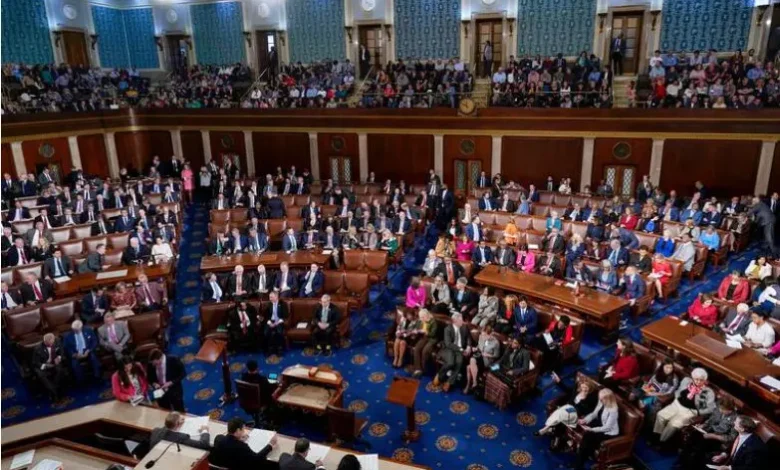U.S. House Passes Stopgap Bill to Prevent Government Shutdown, Senate Next in Line

The U.S. House of Representatives has passed a crucial stopgap funding bill aimed at preventing a government shutdown, which would further exacerbate the economic turbulence already affecting the early months of President Donald Trump’s administration.
The bill, which was approved in a mostly partisan vote, ensures that the government will remain funded through September 30, 2025, giving Trump the summer months to push his legislative priorities, including tax cuts, immigration reforms, and an expansion of energy production.
The bill now moves to the Republican-controlled Senate, where it awaits approval before the looming Friday night deadline. If the Senate fails to act, the government faces a shutdown that could significantly impact the U.S. economy, which is already grappling with the effects of Trump’s trade war and deep federal spending cuts, resulting in mass layoffs.
House Speaker Mike Johnson wasted no time in putting pressure on Senate Democrats, urging them to vote in favor of the bill and avoid a shutdown that could jeopardize the government’s operations and the livelihoods of federal workers.
The specter of a shutdown comes at a delicate moment for the U.S. economy. Wall Street, once buoyed by Trump’s election, has been rattled by concerns over his aggressive tariff policies, which some fear will drive inflation and plunge the country into recession.
A three-week market sell-off has raised doubts about the economic trajectory under the new administration, adding further urgency to the funding debate.
If the Senate does not approve the bill, a shutdown would halt many federal operations, potentially leading to widespread furloughs of public employees and the closure of government agencies.
This could worsen the economic strain, particularly on those who rely on government services and the income of federal workers.
With just days to go before the deadline, all eyes are now on the Senate, where the fate of the stopgap measure—and the potential for a shutdown—rests in the balance.





